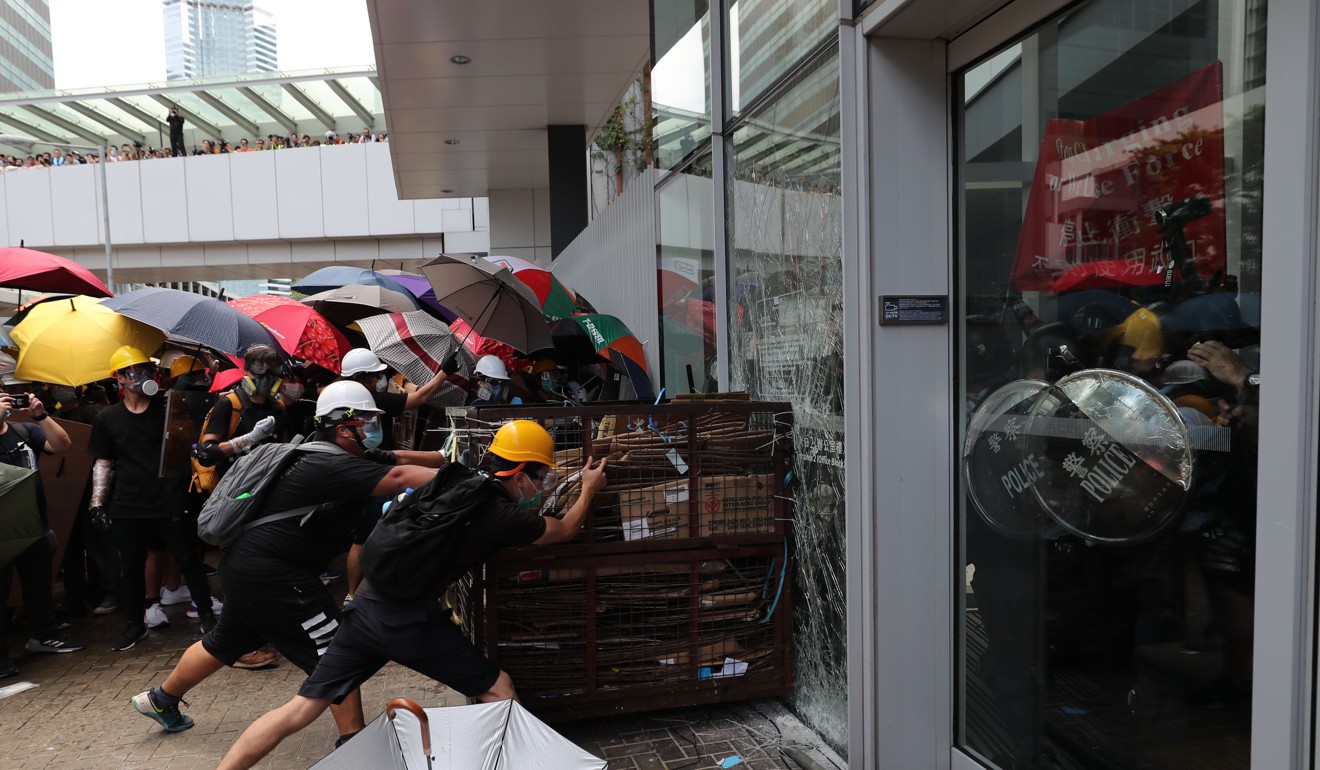
Prosecution of journalist for entering Hong Kong Legco amid July 1 protest sparks ‘extreme concern’ from city’s biggest press body
- Hong Kong Journalists Association cites power of the fourth estate and public interest for media coverage of unprecedented storming
The prosecution of a journalist for entering the legislature during an anti-government protest in Hong Kong has led to the city’s biggest press body raising “extreme concern”.
Ma Kai-chung, a coordinator and reporter for localist online news portal Passion Times, appeared at Eastern Court on Thursday to face one count of entering or remaining in the Legislative Council chamber on July 1.
While the court has not heard whether Ma was there for work, other reporters followed protesters inside the Admiralty complex that day to capture their actions as they stormed the building on the 22nd anniversary of the city’s return to Chinese rule.
The Hong Kong Journalists Association subsequently said in a statement it was “reasonable” for journalists to enter the Legco building that day to exercise their power of the fourth estate and report the event.
“Our association is concerned that if reporters are prosecuted merely for following protesters to a location, it would deal a severe blow to the freedom of the press and public rights to the truth, thus damaging the interest of the public,” it said.
The body also called on the government not to obstruct journalists in doing their job, while urging other news outlets to step up their legal support.
Protesters storm and vandalise Legco as violence engulfs government centre
Legal experts said reporters could be charged for the entry “theoretically”, although they could put up a defence at trial.
“I can’t see why entering the chamber for the sole purpose of news gathering on July 1 would not qualify as a reasonable excuse,” University of Hong Kong law professor Simon Young Ngai-man said.
Ma, the only journalist to be brought to court over the nearly four months of anti-government protests rocking the city, is accused of contravening an administrative instruction backed by the Legislative Council (Powers and Privileges) Ordinance.
On that day, what started as a peaceful annual pro-democracy march turned rowdy when hardline protesters stormed Legco.

By 6.30pm, a red alert for the legislature was in place, meaning that everyone should evacuate.
Soon after 9.30pm, protesters found their way into Legco’s main chamber, spray-painting their demands on walls and blackening Hong Kong’s bauhinia flower emblem above the president’s seat.
Some journalists followed them to document the unprecedented event. Police had retreated and only returned past midnight.
Former lawmaker Ronny Tong Ka-wah said Legco president Andrew Leung Kwan-yuen had no say over whether to press charges.
The secretary for justice would have such power, although she had to come to a conclusion that it was of “huge public interest” while taking into account the strength of the evidence, Tong said.
He said if caught, the journalists inside could therefore be charged theoretically. “That day, the instruction was that everyone should leave Legco,” he explained.
Three arrested over July 1 storming of Legco, according to reports
Tong said reporters who ended up in the dock could rely on the defence of public interest under the common law.
Young from HKU, agreed. He said reporters would have to convince the trial judges, on a balance of probabilities, that they were indeed carrying out their journalistic duties. If proven, it could amount to “legitimate exceptions”.
“However ... he will still have to face a criminal proceeding,” Young said.
Barrister Anson Wong Yu-yat said reporters might also have a constitutional defence. “They can rely on freedom of the press,” he said.
Such prosecutions could be rendered unconstitutional if it amounted to a “disproportionate interference of the freedom of the press”, a right enshrined in the city’s mini-constitution the Basic Law and the Bill of Rights, the human rights specialist said.

